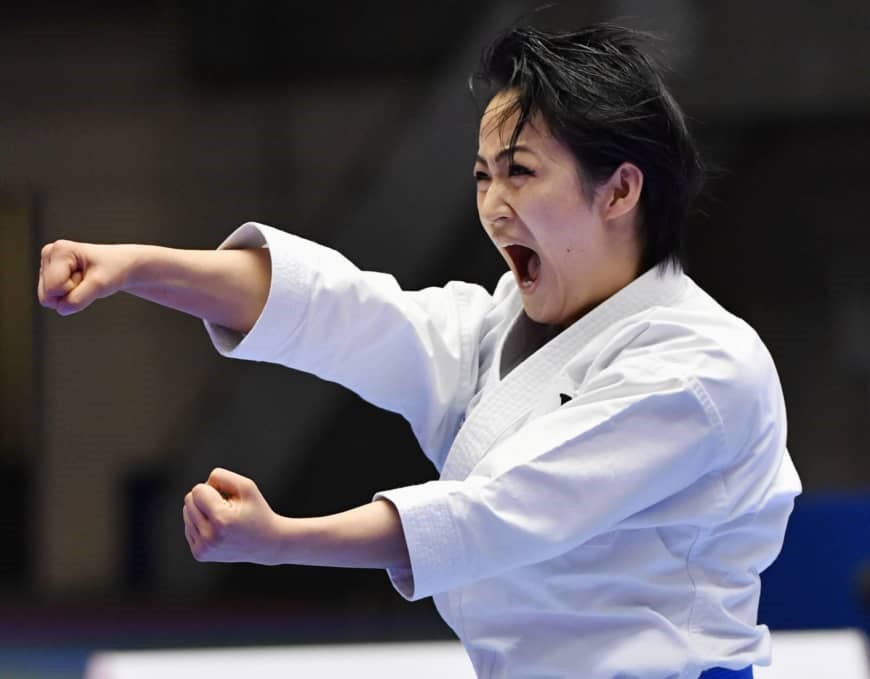Japan's athletes hitting reset button in preparation for postponed Tokyo Olympics

(THE JAPAN TIMIES, JUL 23, 2020)
When the Japanese Olympic Committee set a target of winning 30 gold medals at the 2020 Tokyo Games, it probably didn’t factor a pandemic or a one-year postponement into its projections.
The world is a very different place than it was on June 5, 2018, when the JOC stated its goal of smashing the nation’s previous record of 16 golds, a mark achieved at the 1964 Summer Games in Tokyo and again in Athens in 2004.
The competition schedule was originally slated to begin this month with a softball game between Japan and Australia on July 22. Now things won’t kick off until a year later, when the same teams meet on July 21, 2021, two days before the rescheduled opening ceremony. The new end date for the Olympics is Aug. 8, 2021.
The delay has disrupted training schedules and wrecked the finely tuned plans of athletes around the globe.
“To be honest, we’re going to have to scrap the plans we’ve built up over the past three years,” Reika Utsugi, head coach of Japan’s softball team, said in an online news conference Wednesday.
The Japanese softball team is currently ranked No. 2 in the world and was expected to be among the favorites to win gold this year. Now it’s heading back to the drawing board, starting with a training camp in November.
“We have one more year, but we’re not sure how the coronavirus will affect our plans or how much our players would be able to practice,” Utsugi said. “So we’ll have to see where the players are right now and the come up with a plan.”
For its part, the JOC isn’t backing off its original goal.
“It is difficult to find out how well Japanese athletes can prepare under these conditions and I think the top priority is to understand the current situation,” JOC President Yasuhiro Yamashita said in a news conference earlier this month.
“Therefore, we think we can achieve this goal if Japanese athletes can make the best preparations and give their best effort in the future.”
While the JOC’s goal is ambitious, it doesn’t seem far-fetched. The latest Gracenote Virtual Medal Table, for example, projects Japanese athletes will claim 28 golds, behind only the U.S. and China.
Those projections, however, were released on Feb. 24, before the pandemic threw everything into chaos.
Japan’s older athletes will be another year further from their primes in 2021, which could impact their performance. Softball star Yukiko Ueno turned 38 on Wednesday and gymnast Kohei Uchimura will be 32 in January.
That’s to say nothing of the risk of injury or illness, which can strike any athlete at any time.
There is also the impact the coronavirus has had on training. Many athletes, working under regimens designed to help them hit peak performance this month, had their training programs stopped abruptly when facilities were shuttered during the state of emergency declared from April to May.
At best, the impact next year might be minuscule. But in sports like swimming, track and many others, the difference between winning and losing is often microscopic.
With the nation reopening, some, but not all, athletes have been able to resume training with a new target date in mind.
“The lockdown period has passed and the practice environment is gradually returning to normal,” karateka Kiyo Shimizu, a strong contender for gold in women’s kata, said in a news conference this week. “I want to be flexible in my work while watching the situation. Right now, I’m focusing on making corrections to the basics to strengthen my foundation.”
Some have also had to grapple with the mental shock caused by the postponement.
“When the delay was announced I felt lost and fell into a shell,” swimmer Daiya Seto wrote on Twitter in April. Seto entered the year as a favorite to take gold in the men’s 200- and 400-meter individual medley.
“I wasn’t able to just flip a switch and say I’ll do my best next year.”
Despite the disappointment, some of the athletes are focusing on the silver lining.
“I had a lot of matches last year, so I was really busy because there were too many matches,” table tennis player Miu Hirano said during an online news conference Wednesday. “But I’ve had more time to practice and that gives me an opportunity to get stronger.”
The postponement and COVID-19 fallout will likely place new obstacles in Team Japan’s path to 30 gold medals.
The athletes expected to help hit that mark are navigating an uncertain situation and recalibrating to be in peak condition for what has accidentally become Tokyo 2021.
“The corona crisis and disasters and things like that have continued to happen,” Shimizu said. “I want to be careful in my actions to prevent it from spreading more.
“I just want to do the best I can do now, and really focus so that when we reach the real thing I can go all out without regret.”



